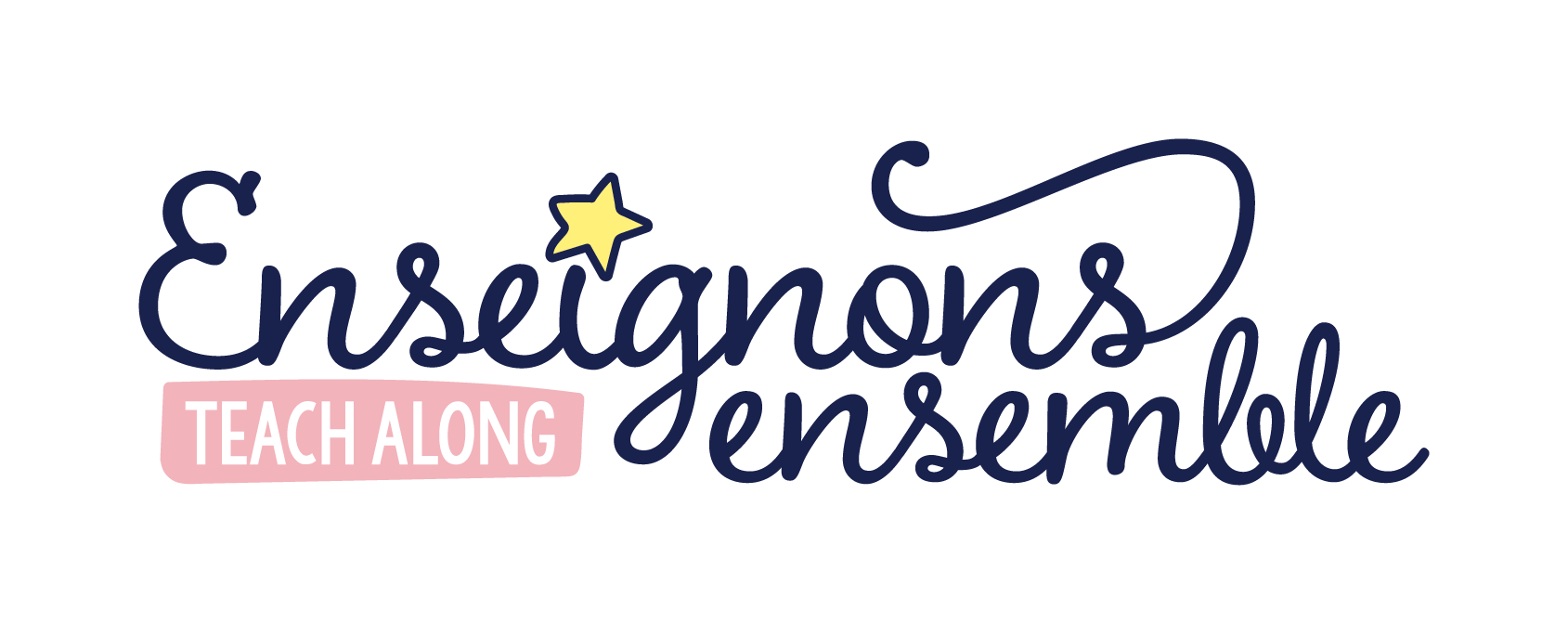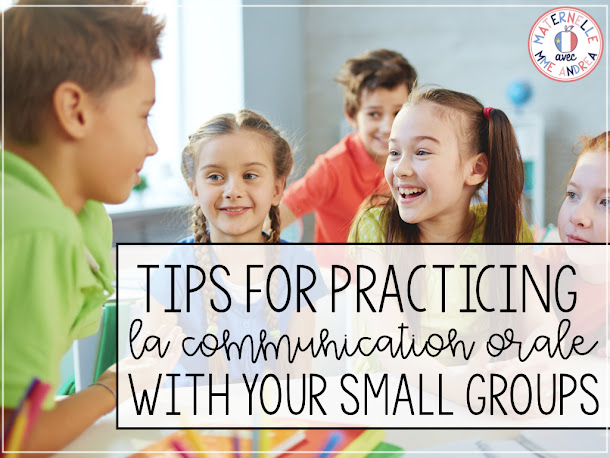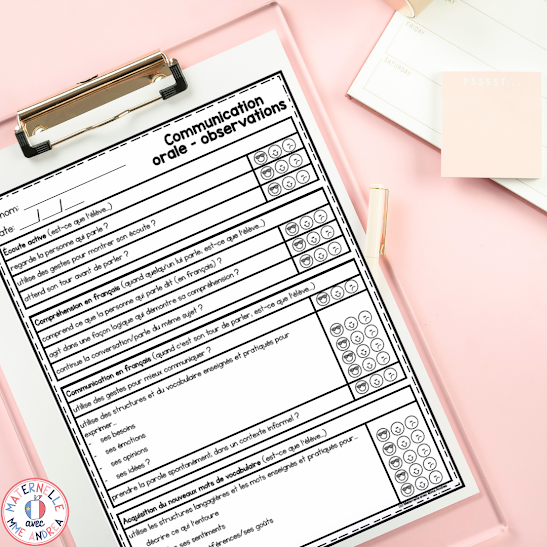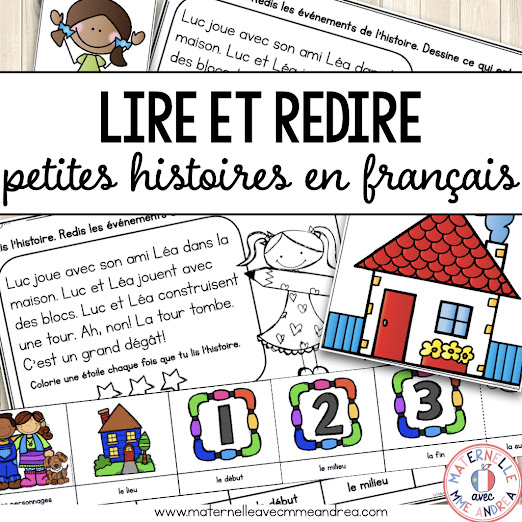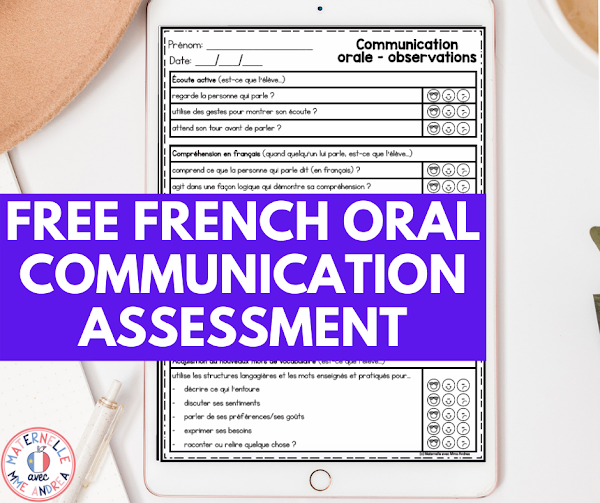Fun fact – when I started teaching, small groups were still pretty new with my board and at my school. I used them for guided reading starting in my second year, but I didn’t really realize or consider how they could be used for other things too. Like math or… la communication orale!
Over the past 10 years of teaching, I’ve fallen more in love with working in small groups for all sorts of subjects.
If you love small groups too, this blog post has a few ideas for working on la communication orale in small groups. Plus it will help you with
Step one – Assess Your Students
Before I even get started, I like to assess my students’ communication orale skills and make sure I am grouping them in a way that works.
Usually, I group them based on the skill I am targeting (sentence structure or vocabulary, for example), so having data in all of those areas at my fingertips is really helpful.
I don’t like my groups too big – I usually try to keep them to 3-4 students per group. I generally group them based on their skill level, but not always. Sometimes, it can be beneficial to pair an orally strong student with a student who his less strong.
My groups are also fluid; they can change at any time based on each student’s progress.
You can grab a copy of the quick observational assessment I use at the end of this blog post, or by clicking the image below. I use the assessment throughout the day our first few weeks of school (and often before each report card) to help me make sure I’m meeting each student’s needs as best I can.
Step Two – Decide What to Work On
Once you have your assessment data, you can look at it and determine areas of need. Often in maternelle, most of my students need to work on EVERYTHING!
I like to make sure I am keeping a close eye on my outcomes for communication orale throughout this process as well.
I find vocabulary the easiest to practice, and usually start with that at the beginning of the year. However, students who may already have a strong vocabulary might find more benefits from working on speaking in complete sentences, sentence structure, active listening skills, common « fautes », etc. in their groups.
Once I’ve identified where students need work (I just highlight the assessment sheet), I put them into their groups and pick a target skill for each group. Sometimes, more than one group might be working on the same target skill; that’s totally fine!
I use the planning sheet included in the assessment download to jot down a couple of notes about how we will practice during our group time. I am not great at planning long, detailed lessons ahead of time, but these notes definitely help keep me on track and prevent me from wasting time!
At my school, we are also blessed to have a « mentor » for communication orale who joins my classroom and works with my students in small groups. In that case, they would make their own plans – I would just group my students and let the mentor know which skills to target in their activities.
Resources That Can Help:
A few of my favourite communication orale activities that I do in small groups have already been turned into TPT products (and a few more are in the pipeline, to be released… someday! haha).
One small group game I love that is super easy to differentiate and gets everyone talking and their “niveau” is called “Qu’est-ce que c’est?“. It’s very simple, but students love it!
Rhymes & chants are also great for getting all your students speaking in small groups. I have a few for practicing vocabulary on TPT as well:
Another very simple activity you can do any time is to take a levelled reader (level 3-4) that has a clear story (beginning/problem/solution/end), read it to your group, and have them retell the story orally (character, setting, beginning, problem, solution, end). It’s sometimes surprising how much of a challenge this can be for our students!
I also have a brand new TPT product specifically for retelling simple stories. I am really proud of it and looking forward to using it this year. It includes five simple stories, plus story cards and “puppets” to help students with retelling.
You can take a peek at that product right HERE.
Other fun games you can find on TPT include games that are in the style of “Guess Who” or “Headbands”, barrier games, etc. Anything that encourages everyone to talk!
Want a Copy of My Assessment/Planning Pages?
You can grab a copy of my quick observational Communication orale assessment sheet and small group planning pages by entering your name & email RIGHT HERE. Hit the pink button, open the email, click the link inside, and a button will appear for you to download it.
Remember, this assessment is just one quick observational assessment to give you some data about the skills your students need to work on, help you form your small groups, and begin to guide your teaching. Don’t forget to continue assessing the rest of your la communication orale outcomes as well!
You may also want to check out this post that includes Fun Ways to Teach French la Communication Orale!
Happy assessing! :)

